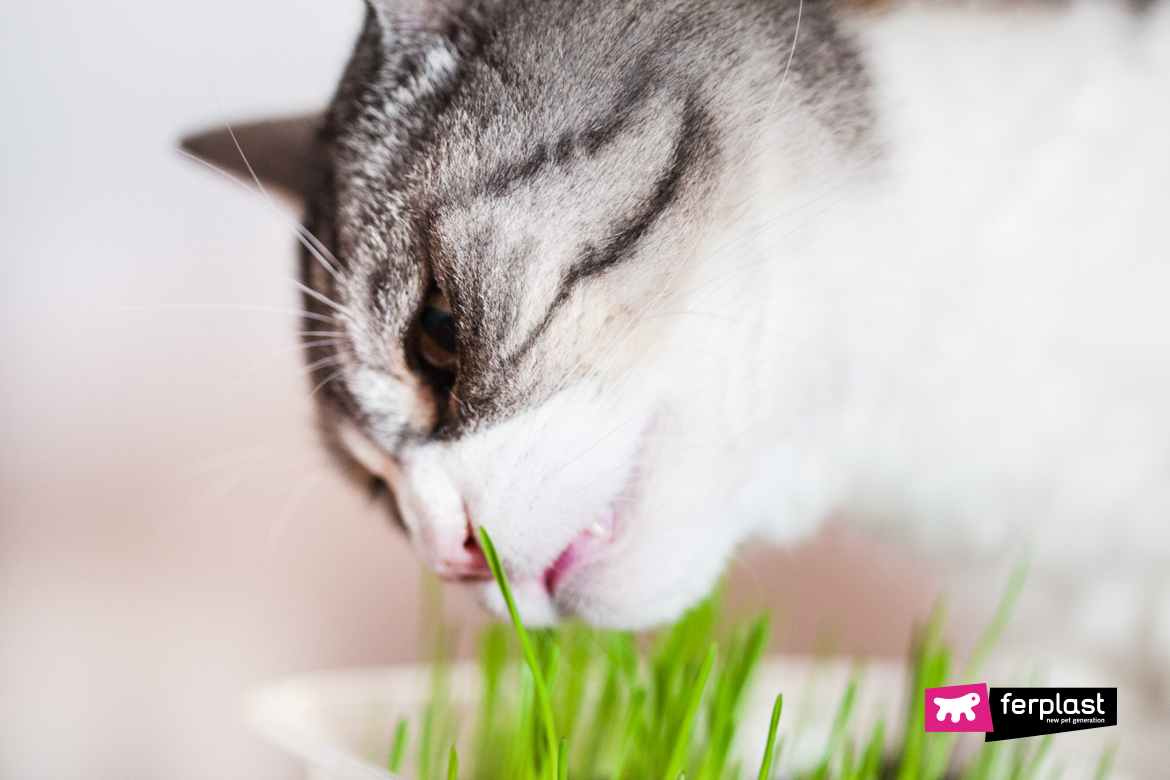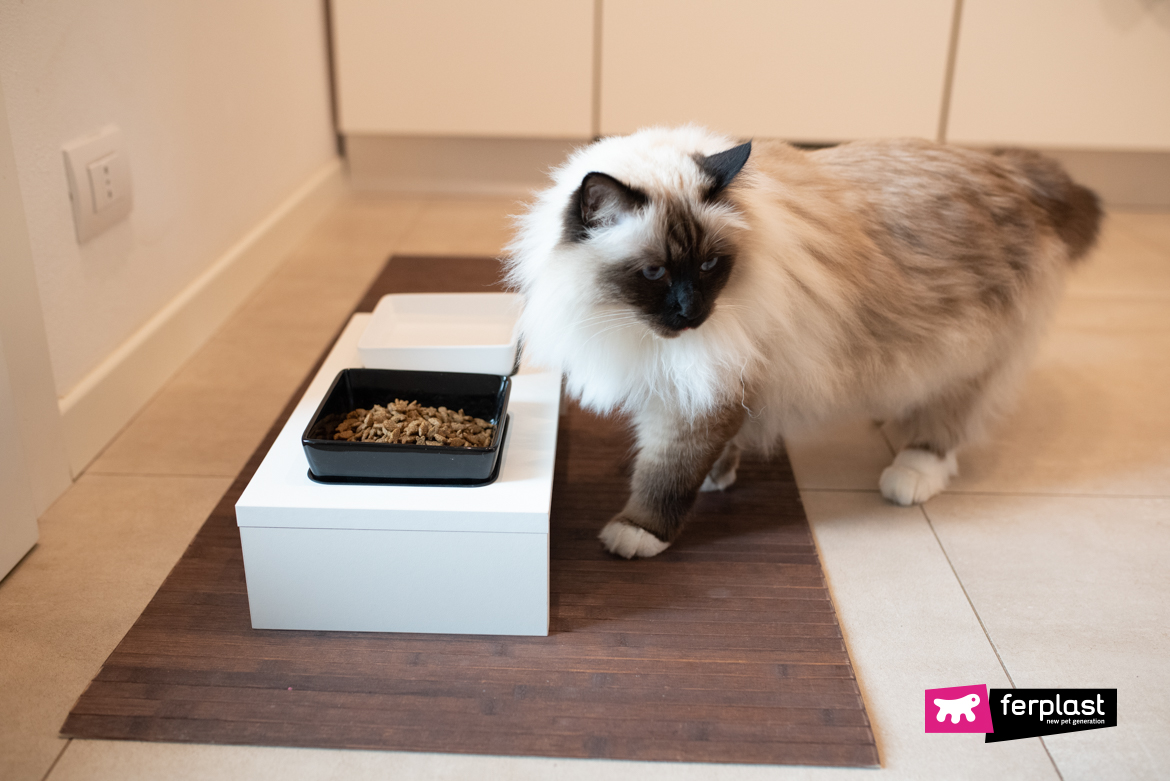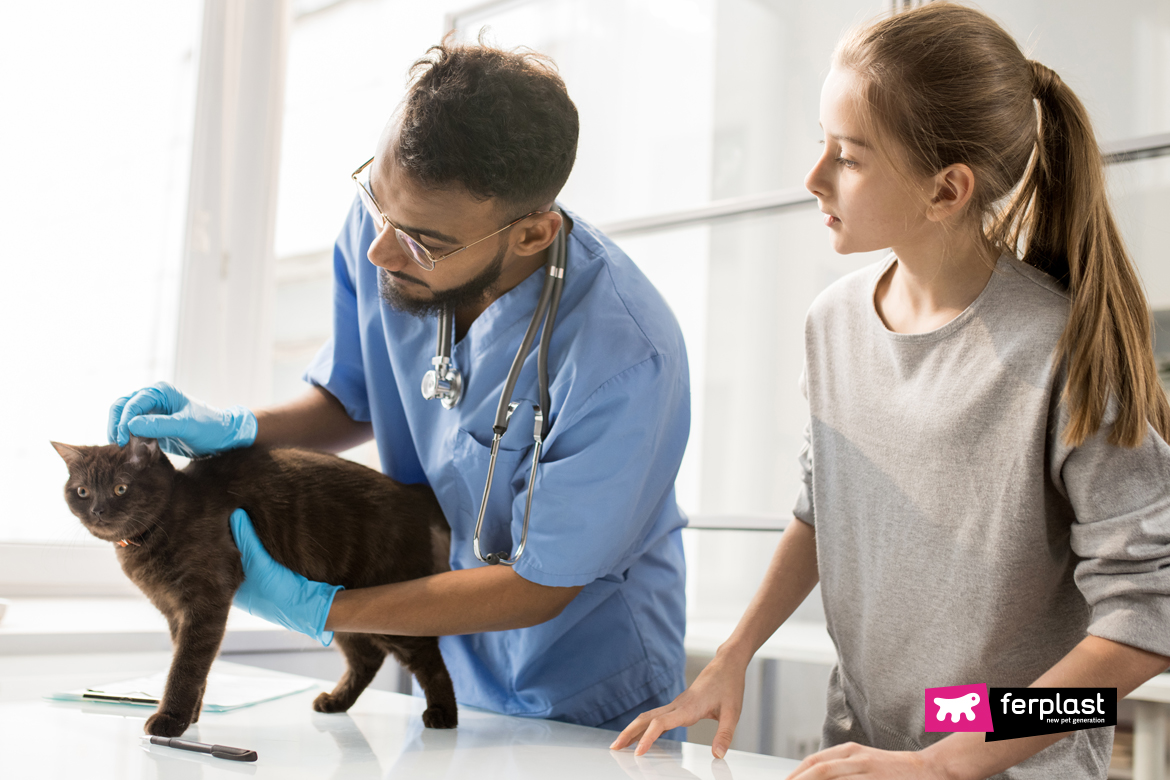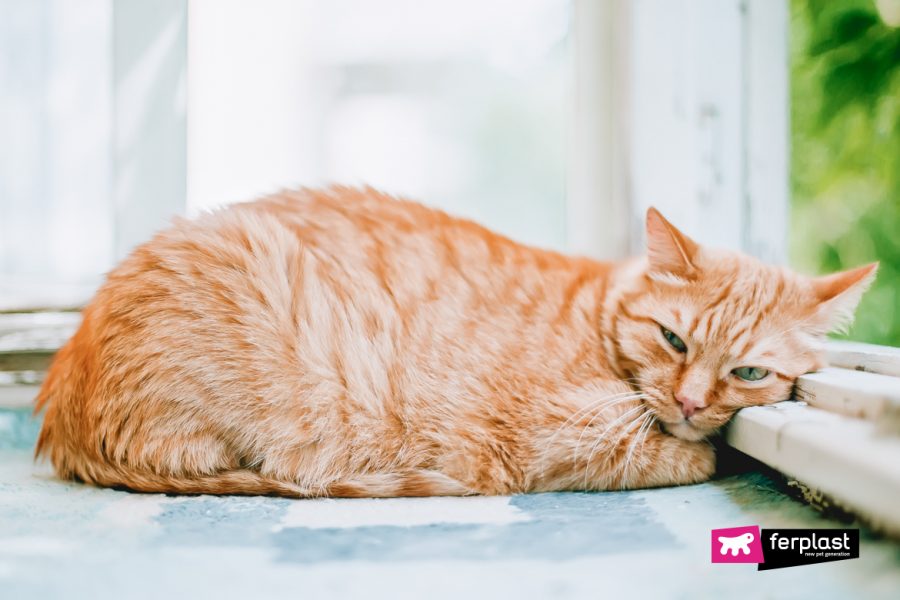Have you ever watched helplessly as your cat vomited? Were you frightened and called the vet? First of all, it is good to know that vomiting in cats is a common phenomenon.
There are many causes of vomiting in cats. Vomiting is only a symptom and not a disease in itself. Therefore, if your cat vomits, you should not be alarmed and think the worst, but investigate the causes.
When does the cat vomit?
The cat vomits when the so-called “vomiting centre”, which is located in a specific area of the brain, is called upon. The act takes the form of an active abdominal squeeze – the classic retching – followed by the expulsion of the contents of the stomach and upper intestine. It may be anticipated by the expulsion of a whitish foam, while the actual vomiting may present a yellow liquid, the bile. The cat can vomit either after eating or on an empty stomach, as the stomach is only completely empty 6 to 8 hours after eating.
Difference between vomiting and regurgitation
Vomiting and regurgitation are often confused. Regurgitation is the expulsion of the contents of the oesophagus. When the muscle dilates and loses tone, it does not move the food into the stomach and, therefore, the cat regurgitates shortly after eating.
In contrast to vomiting, no digested food is expelled and, moreover, the expulsion is effortless.
Causes of vomiting in cats
Vomiting in cats is quite common and happens for different causes.
Primary causes
The main causes of your cat vomiting include gastric causes, i.e. diseases of the stomach or upper intestinal tract, such as:
- gastritis, due to ingestion of inappropriate food or ingestion of too much fur
- bacteria, viruses or parasites
- food allergies
- poisoning
- the presence of a foreign body stuck in the stomach
- cancer of the stomach or intestine
Sometimes cats vomit because they have eaten too quickly or have eaten too much catnip.
Secondary causes
In addition to causes due to gastric problems, there are secondary causes due to diseases in other organs that cause an accumulation of toxic substances in the blood:
- ulcers
- pancreatitis
- inflammation of the liver
- hormonal disorders
When to contact your vet if your cat vomits?
The symptom of vomiting is often associated with other clinical signs, such as increased salivation, licking of the lips, meowing and anxiety. If these are accompanied by signs such as blood in the vomit, diarrhoea, lack of appetite, weight loss and abdominal pain, it is worth contacting your vet. In such cases, emesis may be indicative of more serious problems.
If this is not the case, there is no need to worry, as vomiting is a physiological response from the cat and serves an important internal cleansing function.
As vomiting in cats is a common occurrence, other symptoms should be noted before worrying. If the problem persists for more than a few days and the cat is depressed and dehydrated, it is advisable to contact your vet for advice and specific treatment.

